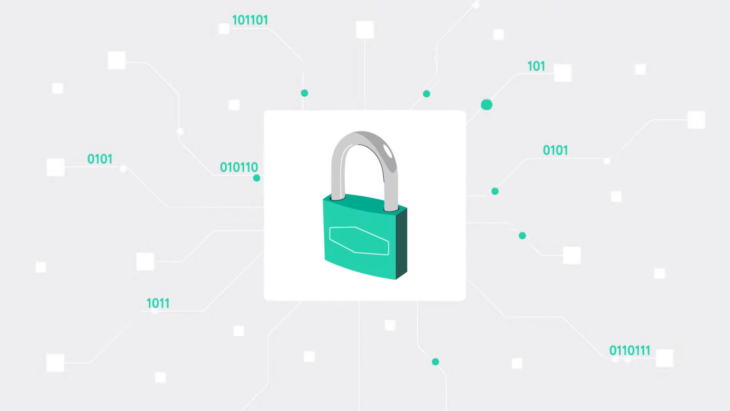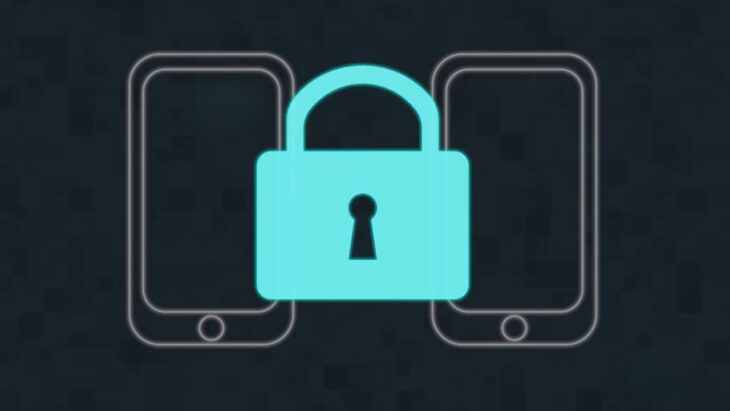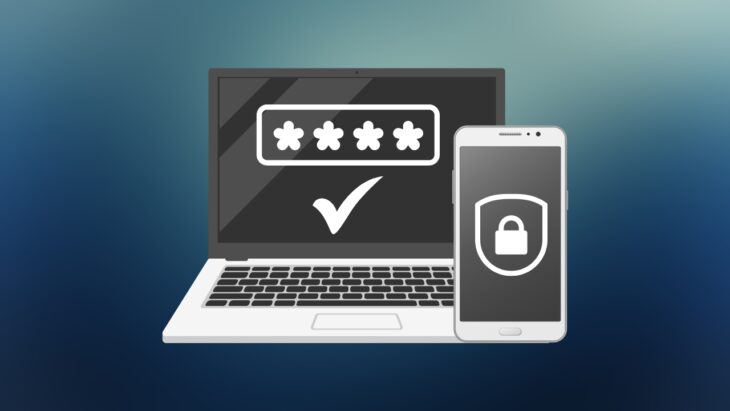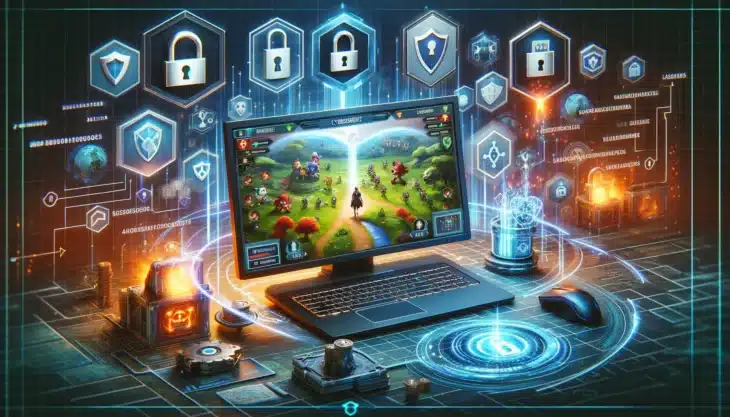In the digital age, where the line between virtual and reality blurs, online casinos stand as fortresses, not just of luck and chance, but also of vast amounts of personal and financial data.
The security measures these digital gambling havens employ are not just walls and moats of the medieval age but sophisticated, invisible shields designed to protect their treasure trove of data.
Today, I will talk about the world of online casino security, revealing the mechanisms that keep them safeguarded against the ever-looming threats of cyberattacks, fraud, and data breaches.
Table of Contents
ToggleWhy Security in Online Casinos Matters?

Before we delve into the specifics, let’s understand the stakes. Imagine an online casino as a bustling, digital Las Vegas, where every transaction, bet, and spin of the reel is a potential goldmine of information.
This information, if left unprotected, could be the jackpot cybercriminals are looking for. Thus, securing an online casino is akin to fortifying a city – it’s not just about protecting wealth; it’s about ensuring trust, safety, and the integrity of the gaming experience for every user.
For those interested in the convergence of secure payment methods and live casino gaming, PayPal stands out as a preferred choice for many players.
Offering both convenience and security, it enables swift deposits and withdrawals at leading live casinos, ensuring that your gaming experience is not only enjoyable but also secure.
For a comprehensive guide on the best live casinos that accept PayPal, including insights on fees, processing times, and transaction limits, find out more. This resource provides valuable information to help you navigate the world of live casino gaming with the added peace of mind that PayPal offers.
1. The Shield of Encryption

Encryption is the cornerstone of online security, a magical spell that turns readable data into indecipherable code.
Online casinos use this spell widely, employing protocols such as Secure Sockets Layer (SSL) and Transport Layer Security (TLS) to ensure that any data transmitted between the player and the casino is as secure as a conversation in a room of silence.
It’s akin to passing notes in class that can only be read by the intended recipient – even if someone intercepts the note, all they see is gibberish.
The Role of SSL/TLS in Protecting Data
These encryption protocols create a secure channel over an insecure network, ensuring that personal information, payment details, and all forms of communication are protected from prying eyes.
This is not just about keeping secrets; it’s about building a fortress around each piece of data, making it impenetrable to invaders.
2. Firewalls and Anti-Fraud Systems

Firewalls serve as the high walls and guarded gates of the online casino, controlling incoming and outgoing network traffic based on predetermined security rules. Think of it as the bouncer at the club’s entrance, meticulously checking each guest against the guest list, ensuring that only legitimate traffic gets through.
This barrier is crucial in preventing unauthorized access and protecting against DDoS attacks, which could cripple the casino’s operations.
The Role of Anti-Fraud Systems in Ensuring Security
Beyond the walls, the casino employs an army of anti-fraud systems equipped with algorithms and AI, vigilant against the specters of identity theft and credit card fraud. These systems scrutinize every transaction, every bet, and every movement within the casino, looking for patterns and anomalies that scream foul play.
It’s like having Sherlock Holmes with a magnifying glass, examining each clue to outwit potential fraudsters.
3. Device Fingerprinting and Secure Payment Gateways
Device fingerprinting is the secret code, the unique mark left by each player’s device that can be used to identify and track potential fraudulent activity.
Imagine every device as a person with a unique gait, style of dress, and manner of speaking – these identifiers help the casino recognize returning guests and spot impostors trying to sneak in through the back door.
Ensuring Safe Passage: The Role of Secure Payment Gateways
When it comes to the transfer of funds, online casinos don’t just send money sailing across the digital sea without an escort. Secure payment gateways are the armored convoys, equipped with features like tokenization, hashing, and two-factor authentication, ensuring that each transaction reaches its destination safely.
It’s the difference between sending a letter with a wax seal and an armed courier – the message is much less likely to be tampered with.
4. Regular Security Audits
Security audits are the periodic checks, the surprise inspections that ensure everything is as secure as it appears.
Conducted by third-party firms or in-house teams, these audits are like going to the doctor for a check-up, making sure that the casino’s defenses are healthy, up-to-date, and capable of repelling any attacks. It’s a necessary process, ensuring that the walls are strong, the moats are deep, and the archers are ready.
5. User Responsibility and Two-Factor Authentication

While the casino has its arsenal for defense, the user is not without responsibility. The personal armor of caution against spam and phishing emails, the shield of regularly updating device software, and the sword of using strong, unique passwords are all vital in the battle against cyber threats.
It’s like being a knight in the digital realm – the castle may be fortified, but the knight must still wear armor.
The Extra Layer: Two-Factor Authentication
Two-factor authentication (2FA) adds an extra layer of protection, a second gate at the entrance that requires not just the key but also a secret code. This could be a text message, an email, or an app notification – a way to ensure that the person trying to enter is indeed who they claim to be.
It’s the difference between a lock and a lock with a deadbolt – an added security measure that makes a world of difference.
FAQs
Can I Check if An Online Casino Uses SSL Encryption?
Yes, you can check for SSL encryption by looking for a padlock icon next to the website’s URL in your browser, indicating a secure connection.
Are All Payment Methods at Online Casinos Equally Secure?
While reputable casinos ensure the security of all offered payment methods, using well-known and widely trusted options like credit cards, e-wallets, and bank transfers typically offer additional layers of security and fraud protection.
How Often Should I Update My Password for Online Casino Accounts?
It’s wise to update your password every three to six months or immediately after noticing any suspicious activity on your account.
Do Online Casinos Have a Protocol for Data Breaches?
Yes, reputable online casinos have protocols that include notifying affected users, taking immediate action to secure accounts, and working with cybersecurity experts to mitigate the breach’s impact.
Is It Safe to Use Public Wi-Fi when Playing at Online Casinos?
Using public Wi-Fi can expose you to security risks. It’s safer to use a secure, private connection or a VPN when playing at online casinos.
Can Online Casinos Detect if Someone Else Tries to Access My Account?
Yes, with device fingerprinting and monitoring of account activity, online casinos can detect unauthorized access attempts and often alert the account holder or take precautionary measures.
Final Words
The protection of data in online casinos is not a one-time effort but a continuous battle against evolving threats. Like a castle in medieval times, the defenses must be constantly maintained, upgraded, and reinforced to withstand the sieges of modern-day cybercriminals.
The commitment to security is not just about safeguarding assets but about ensuring trust, integrity, and the uninterrupted enjoyment of the digital gambling experience.
For players, the journey into the world of online gambling should begin with choosing licensed and reputable casinos, understanding the importance of encryption, and recognizing their role in maintaining their security.
For the casinos, the challenge is to stay several steps ahead of potential threats, fortifying their defenses with the latest technologies and strategies.


